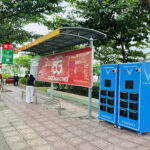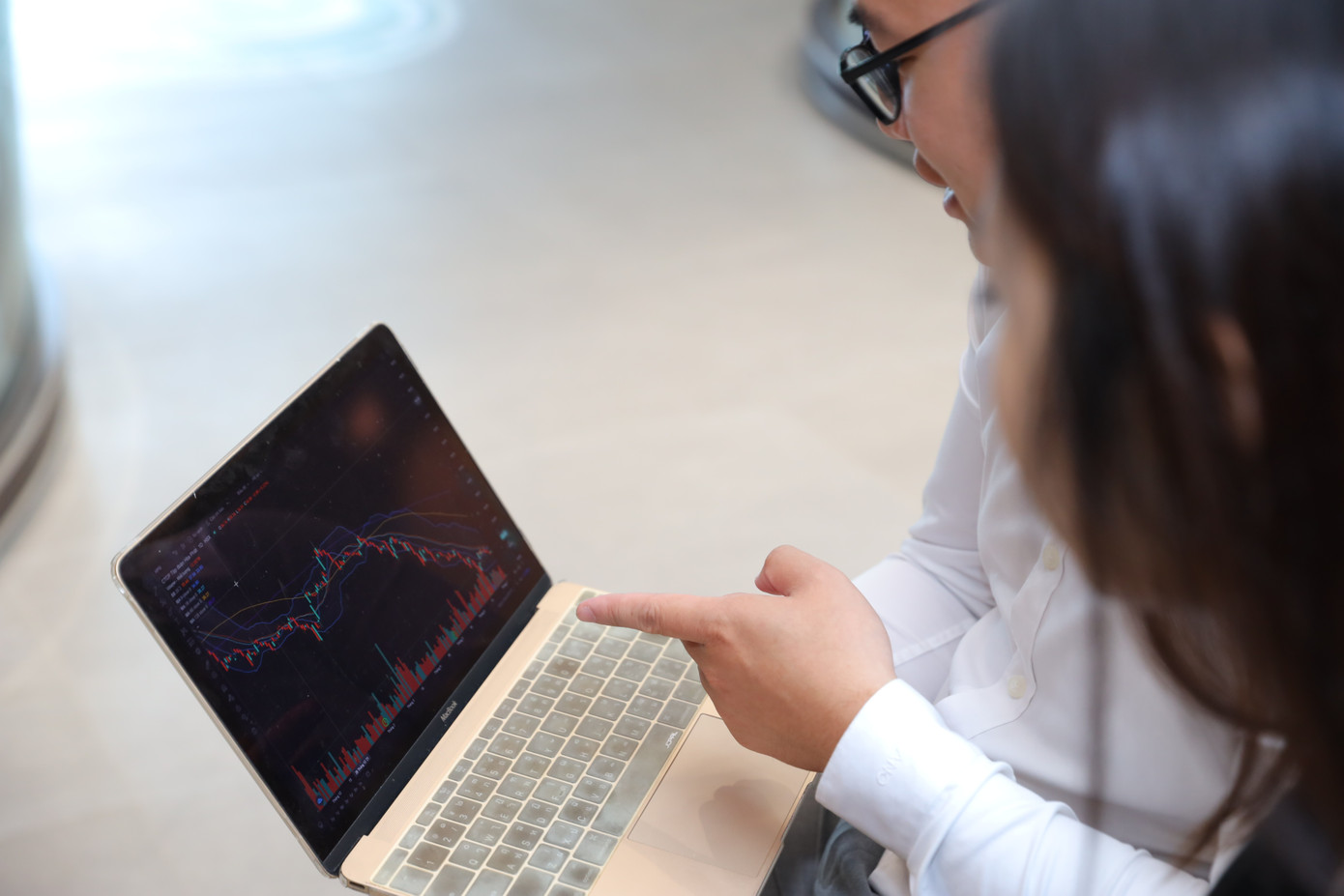
In Vietnam, digital transformation has been implemented in most industries and sectors for many years. There are some successful industries, such as finance, but there are also some industries that still face obstacles, such as agriculture. As someone involved in this field, what do you think is the biggest challenge of digital transformation in agriculture?
First of all, it is important to emphasize that digital transformation in agriculture is mainly to serve the purpose of tighter government management, and it is the most important foundation for building a national brand for Vietnamese agriculture. As I mentioned earlier, the biggest obstacle in the agricultural sector is that we have not strictly implemented policies and regulations with the supply market.
Digital transformation in agriculture, let’s not talk about things that are too far-fetched, first of all, we need to trace the origin and link the chain to ensure standards in order to build a brand and export well.
Do farmers want to digitize? They really want to, for transparency, fairness, to avoid counterfeiting of origin of goods, and counterfeiting of standards – a situation that makes them very angry.
Let’s take an example, durian, a type of agricultural product that we are very excited about because last year it exported more than 2 billion USD. But behind it, there is a major problem, which is the authorization to use cultivation area codes, packaging facility codes;
In the years before China began to impose cultivation area codes, farmers were enthusiastic about obtaining cultivation area codes, but after a while, there were businesses taking over and “doing tricks” by buying and selling cultivation area codes. There were “teams” going to do cultivation area codes, selling them for 2-300 million, and even billions of Vietnamese dong for one cultivation area code. The same goes for the authorization to use packaging facility codes. In my opinion, such “loopholes” are extremely irrational and completely wrong in the agricultural sector, and they can lead to counterfeiting of standards and counterfeiting of origin of goods.
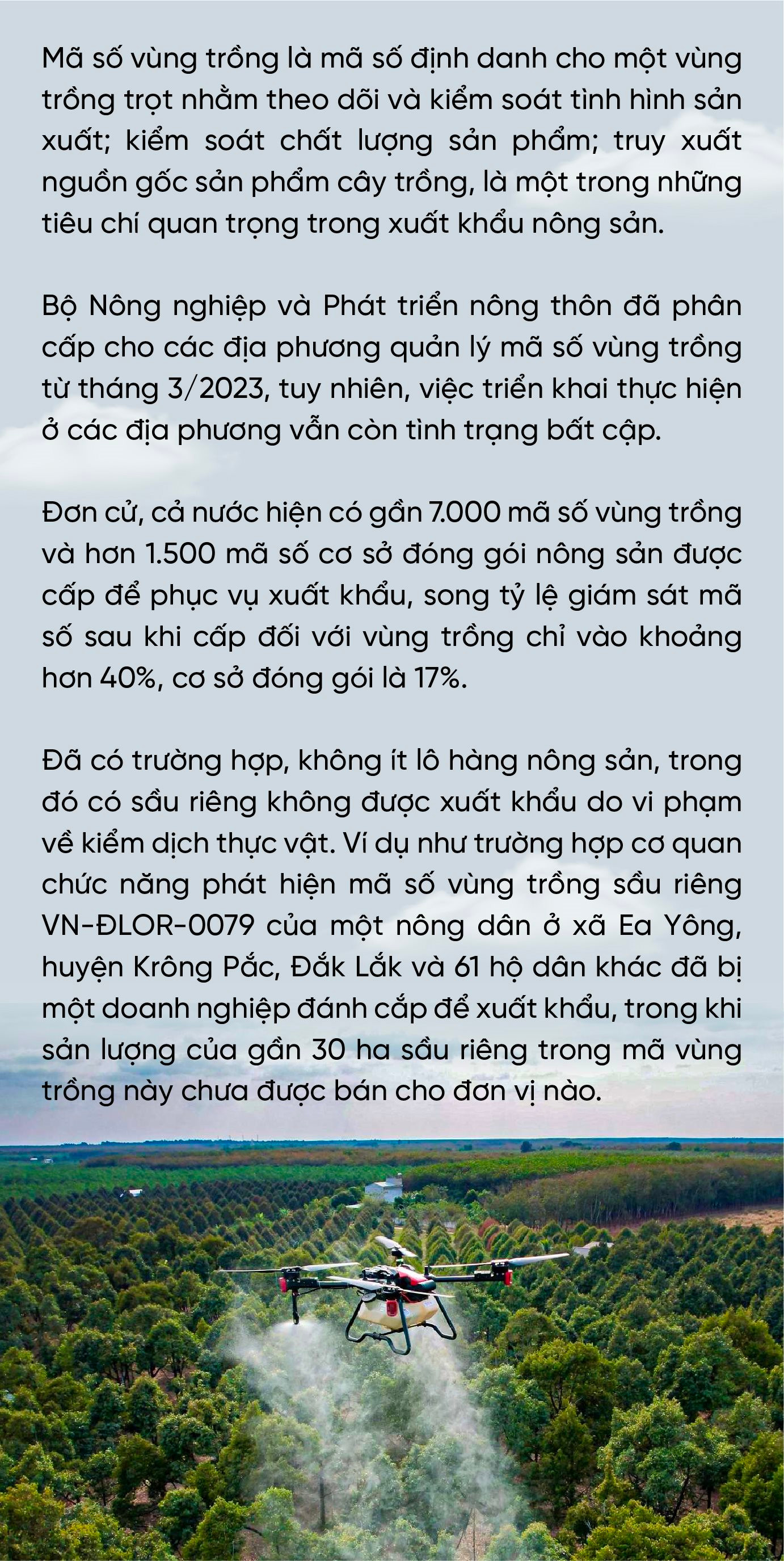
In order to successfully digitize agriculture, the role of government management is extremely important. Speaking of successful digital transformation experiences, you don’t have to look far, just look at the very successful digital transformation in the finance industry. Now, from companies to individual business households that want to issue invoices, register anything, they all use software because we have already abolished paper invoices.
The finance industry has laid a solid foundation for the country’s digital transformation in other sectors, especially in the agricultural sector.
If the agricultural sector can collaborate with the tax authorities to trace the origin, the cultivation area codes and packaging facility codes of the agricultural sector can be interconnected with the tax authorities, then it will be easy to solve the problem of market control and transparency.
For example, if the cultivation area code has a yield of 100 tons, but when exported, it reaches 150 tons, the tax and customs department can immediately control the violation. All batches with signs of violations can be traced back to determine whether the company purchased from the correct cultivation area code or not.
By solving this bottleneck, avoiding counterfeiting of origin, counterfeiting of standards, we can persuade farmers to comply with the standards in order to create a competitive advantage.
We are currently progressing very slowly in the implementation of cultivation area codes, only reaching 20% of total sales volume, because we are not doing it properly and thoroughly. If we do it thoroughly, we can finish this important task in one year. When technology is involved, data digitization can be done very quickly. With AutoAgri, every second, we can digitize a whole file, and fully integrate the database with the tax and customs agencies.
When we solve the problem of controlling the origin of exported goods, in turn, we will have the right to require countries importing goods into Vietnam to do the same, and we will have control over the market.
In summary, digital transformation in the agricultural sector has immense value, and I believe that the Vietnamese people and Vietnamese businesses have solutions, as long as we are determined and do not complicate simple issues.

Recently, I learned that you have had business trips to some countries such as Laos, South Korea. What were the results of these trips?
Recently, when I was working with the Ministry of Agriculture of Laos, discussing about the digital transformation software for agriculture, they said it would be great if Laos could have this software.
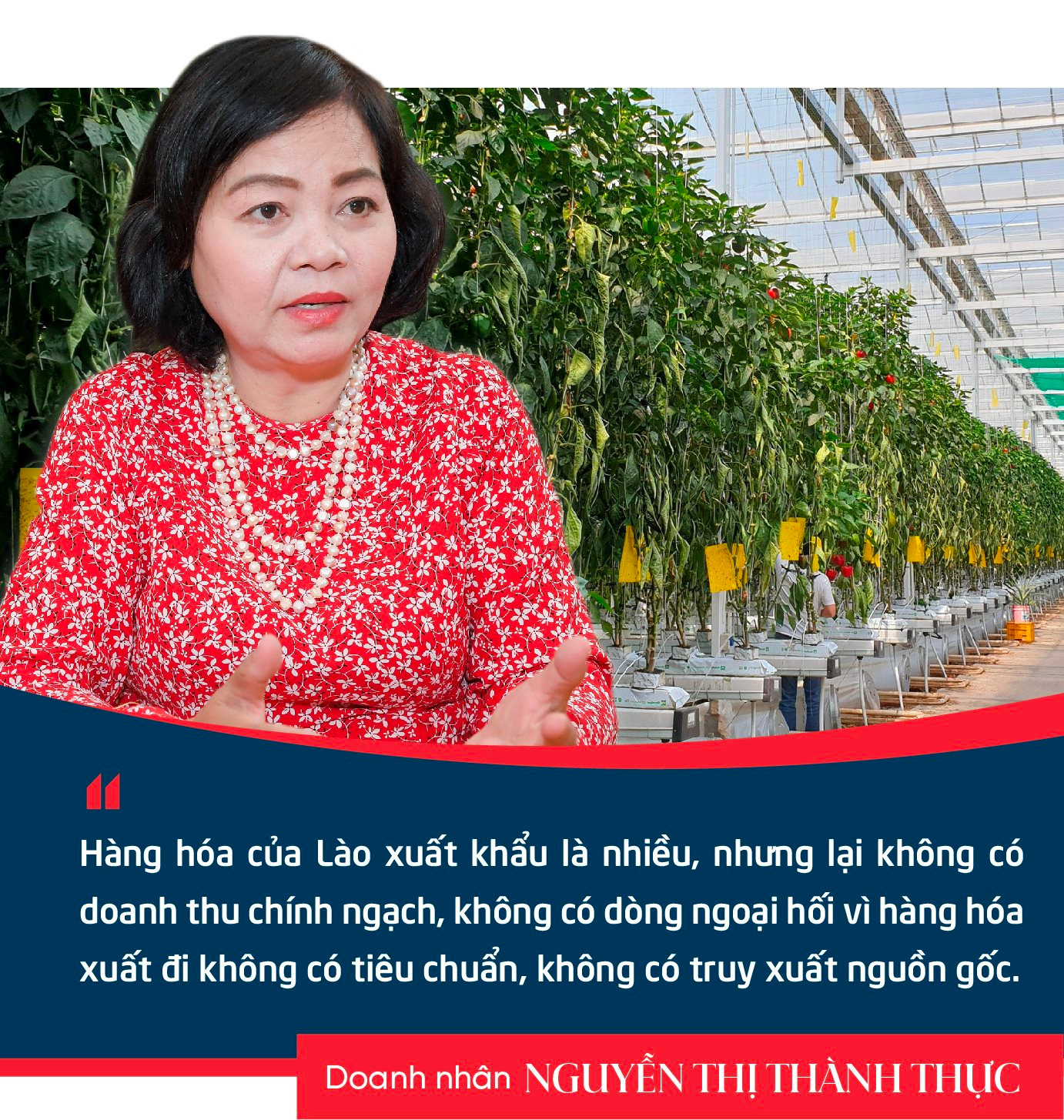
One issue in Laos is that although Laos exports a lot of goods, there is no official revenue and no foreign exchange because the exported goods do not meet standards and cannot be traced back to their origin, so they have to go through unofficial channels to Vietnam and then to China. Data digitization is needed to enable official exports to China.
I decided to give it to them, partly because I knew their budget was limited, and it would help them solve the problem of official exports, increase foreign exchange, and partly because traceability would also support the farmers in selling agricultural products to Laos.
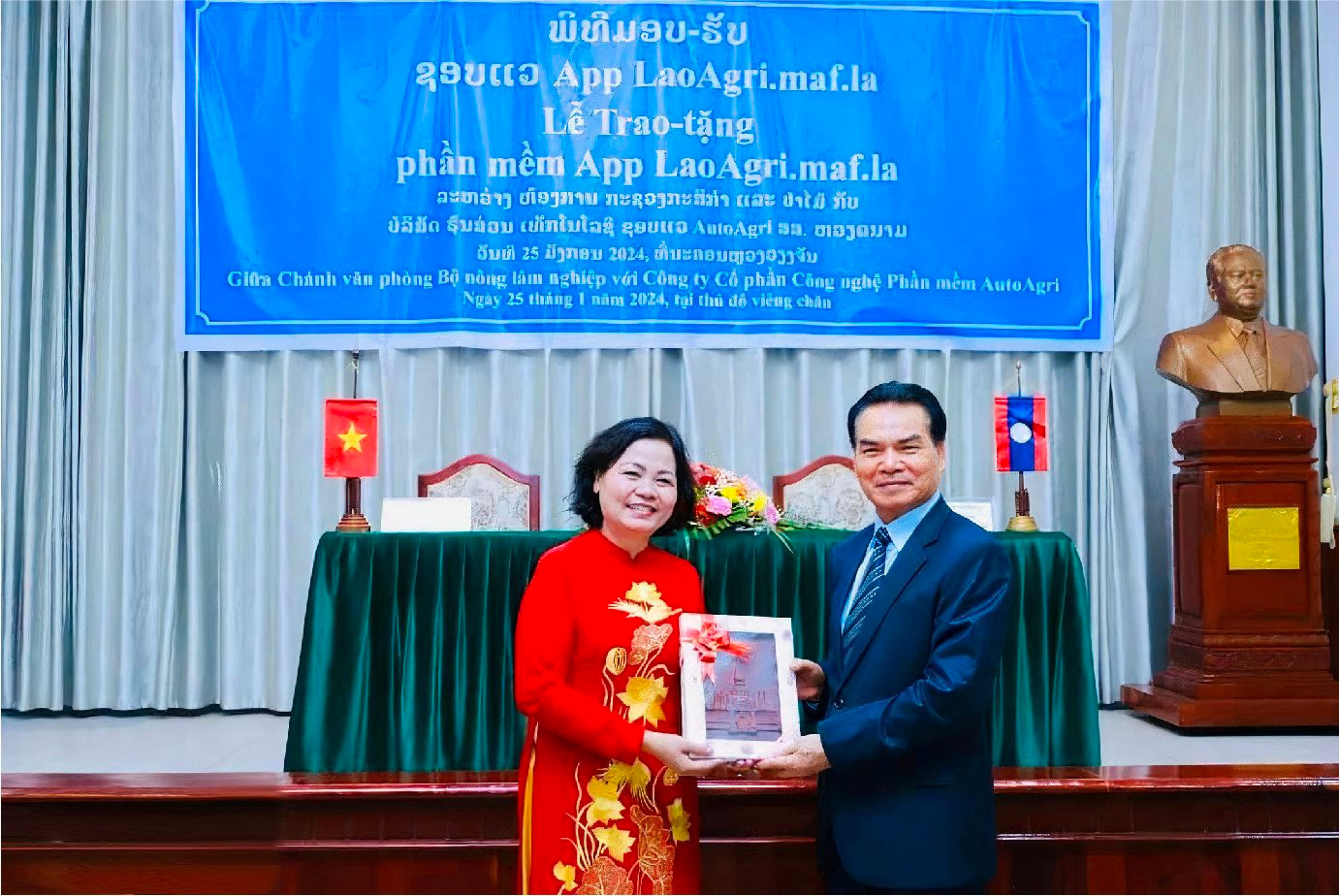
As for South Korea, AutoAgri is a science and technology company from Hanoi supported by the city of Hanoi in a business trip to South Korea to develop startups.
South Korea is perhaps second only to the US in terms of investment in startups – for innovative startups. They have many well-equipped innovation support centers, not only in terms of facilities, but also in terms of people and environment. They have attracted many domestic and foreign investment funds, along with a priority visa policy for foreign entrepreneurs to attract talent. That is an opportunity.
With AutoAgri, when I presented the product to South Korean business owners, they also liked it and invited me to invest.




